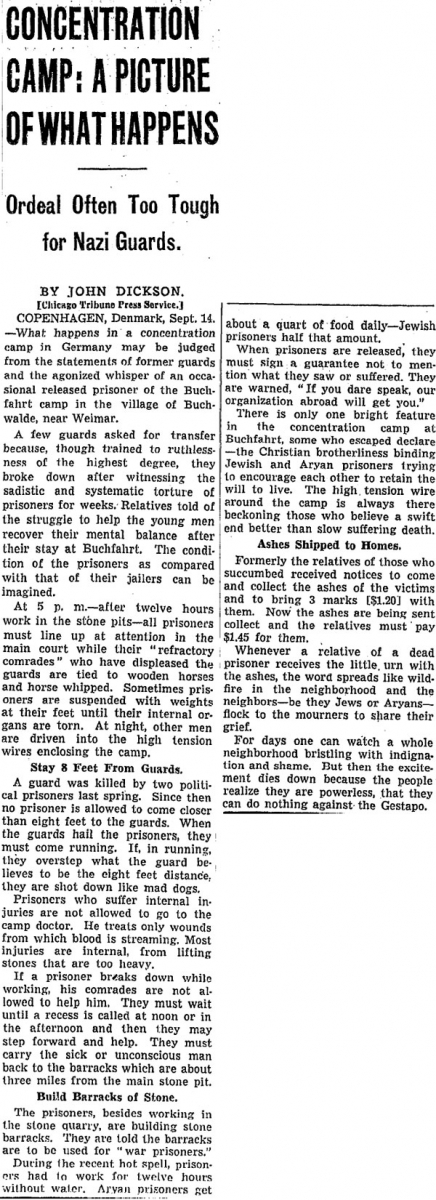
“A cannon that saw duty in World War I stands in the yard of a Chicago steel mill, ready to be melted down and processed into a modern weapon for World War II.”
* Ernie Pyle, “A Dread Masterpiece,” December 30, 1940:
For on that night this old, old city – even though I must bite my tongue in shame for saying it – was the most beautiful sight I have ever seen.
It was a night when London was ringed and stabbed with fire.
* Richard Cahan, “A Terrorist’s Tale,” February 2002:
Haupt headed home. He rode a train to Chicago’s Union Station and grabbed a cab. For eight days, he resumed the Chicago life he had left a year before—living with his parents on Fremont Street, seeing relatives and friends, reconnoitering with his girlfriend. His dad bought him a car, and he prepared to return to his old job at an optical factory. But on June 27th, Haupt’s Pontiac coupe was surrounded by FBI agents near a North Side el stop. He was arrested and charged with sabotage. By the end of the day, all eight of the Nazi terrorists were in jail.
* Paul Salopek, “Nobody Is Watching,” November 24, 2008:
To glimpse America’s secret war in Africa, you must bang with a rock on the iron gate of the prison in this remote port in northern Somalia. A sleepy guard will yank open a rusty deadbolt. Then, you ask to speak to an inmate named Mohamed Ali Isse.
Isse, 36, is a convicted murderer and jihadist. He is known among his fellow prisoners, with grudging awe, as “The Man with the American Thing in His Leg.”
* Lee Sandlin, “Losing the War,” March 7 & 14, 1997:
Another Viking term was “fey.” People now understand it to mean effeminate. Previously it meant odd, and before that uncanny, fairylike. That was back when fairyland was the most sinister place people could imagine. The Old Norse word meant “doomed.” It was used to refer to an eerie mood that would come over people in battle, a kind of transcendent despair. The state was described vividly by an American reporter, Tom Lea, in the midst of the desperate Battle of Peleliu in the South Pacific. He felt something inside of himself, some instinctive psychic urge to keep himself alive, finally collapse at the sight of one more dead soldier in the ruins of a tropical jungle: “He seemed so quiet and empty and past all the small things a man could love or hate. I suddenly knew I no longer had to defend my beating heart against the stillness of death. There was no defense.”
* Finally, a couple reads from Sigrid Schultz, a Chicago native and Sorbonne grad who joined the Tribune during World War I, rose to the position of Berlin bureau chief, and covered the rise of the Nazis up through the beginning of World War II. Injury and illness forced her back to the States for much of the War, but she returned at its end to report on the aftermath. (The first story is bylined “John Dickson,” an amusingly generic pseudonym the paper used to protect her identity.)


Photograph: Ann Rosener, FSA/OWI


